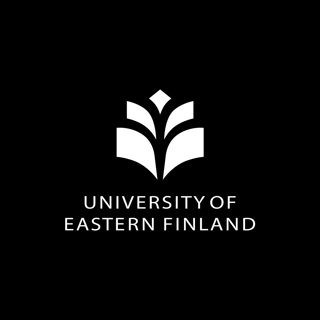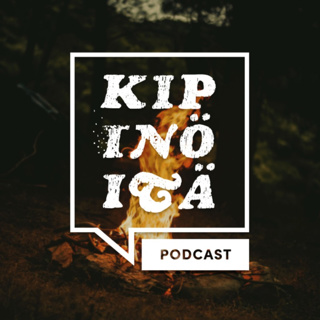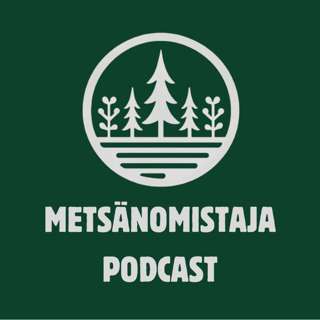
Answers to Your Science Questions
We’ve thrown open the airwaves to you. Marnie Chesterton puts your science questions to Penny Sarchet, Managing editor of New Scientist, Mark Maslin, Professor of Earth System Science at University College London and Catherine Heymans, Astronomer Royal for Scotland and Professor of Astrophysics at the University of Edinburgh. So, if you’ve ever wondered why planets are round… or what geese are saying to each other as they fly in groups through the sky, listen in for the latest science and some educated hypothesising. Presenter: Marnie Chesterton Producers: Dan Welsh & Debbie Kilbride Editor: Martin Smith Production Co-ordinator: Jana Bennett-Holesworth
15 Touko 28min

How can science help us fight wildfires?
In the past few days, UK firefighters have been tackling wildfires across the UK. As global temperatures rise, fires are likely to increase in strength and number. We hear from Rory Hadden, Professor of Fire Science at the University of Edinburgh, and Aidan McGivern, meteorologist and weather presenter from the Met Office.Presenter Marnie Chesterton has been behind the scenes at Cambridge’s Natural History Museum with Assistant Director of the University Museum of Zoology Jack Ashby.Also, the woman who came third in the Brighton marathon in the middle of her hen weekend. We hear from Dr. Ann-Kathrin Stock, neuroscientist at Dresden University Clinics and member of the international Alcohol Hangover Research Group about the science behind hangovers and why it might not be such a good idea to run a marathon whilst hungover.And science journalist Caroline Steel has been scouring the science journals.Presenter: Marnie Chesterton Producers: Clare Salisbury, Dan Welsh, Jonathan Blackwell Editor: Martin Smith Production Co-ordinator: Jana Bennett-Holesworth
8 Touko 35min

Is this finally the moment for UK tidal power?
Why does the UK, an island shaped by its strong tides, still not have any major tidal energy schemes? Plans for tidal barrages in the UK seem to be regularly discussed but never come to fruition, but now a new report has suggested that a tidal lagoon should be created in the Severn Estuary to generate electricity. Guest presenter Tom Whipple speaks to Chair of the Severn Estuary Commission, Dr Andrew Garrad, about whether this will finally be the moment for tidal power that we’ve been waiting for. Also, earth scientists around the world are trying to understand why the 7.7 magnitude earthquake which struck Myanmar last weekend was just so devastating. Dr Ian Watkinson, structural geologist at Royal Holloway university, tells us about a theory that a seismic event called a ‘supershear earthquake’ took place. And a new bat is causing controversy in the baseball world! The ‘Torpedo Bat’, engineered by an MIT physicist, has helped the New York Yankees crush records in Major League Baseball. Steve Haake, Professor of Sports Engineering at Sheffield Hallam University explains why this bat has helped hitters hit so many home runs. Science journalist Caroline Steel drops in with her picks of the week’s news, including a new blood test for Alzheimer's disease, a potential new super collider and a new way to identify which bees are most hygienic. Presenter: Tom Whipple Producers: Clare Salisbury, Dan Welsh, Jonathan Blackwell Editor: Martin Smith Production Co-ordinator: Jana Bennett-Holesworth
1 Touko 28min

Is everything we know about the universe wrong?
For the last week or so, the world of physics has had just one conversation.Have we found a new way of understanding the universe? And if so, what does this mean for our understanding of how we all came to exist – and even our fate? These big questions were prompted by new data from the Dark Energy Spectroscopic Instrument team at the Kitt Peak National Observatory in Arizona. To explain what was found, whether it’s right and just how excited we should be, we’re joined by astrophysics professor Catherine Heymans and cosmologist Andrew Pontzen. Also this week, what became of the Winchcombe meteorite? We attempt to explain some seriously advanced maths in less than two minutes, and Penny Sarchet from the New Scientist brings us her picks of the week’s science news. Presenter: Marnie Chesterton Producers: Gerry Holt, Ella Hubber & Sophie Ormiston Reporter: Gareth Mitchell Editor: Martin Smith Production Co-ordinator: Jana Bennett-Holesworth
24 Huhti 28min

Wild birds in crisis
Every species of wild bird in the UK is continuing to decline at a stark rate – according to the latest data. Guest presenter Ben Garrod wants to understand why wild birds are in trouble despite government promises to halt nature decline by 2030. Ben goes birdwatching in Norfolk to see the impact for himself and then heads back to the studio to hear about the kind of threats birds face and what is happening to tackle the problem. Also this week, after two stranded Nasa astronauts were finally brought home to Earth following a nine-month stint in space, we ask why it was such a big moment for SpaceX – and what this might mean for Nasa. Science journalist Caroline Steel drops in with her picks of the week’s news, including dark oxygen and floating iguanas, and we find out what makes a good day according to science... Presenter: Ben Garrod Producers: Dan Welsh, Sophie Ormiston & Gerry Holt Field Producer: Stephanie Tam Editor: Martin Smith Production Co-ordinator: Jana Bennett-Holesworth To discover more fascinating science content, head to bbc.co.uk search for BBC Inside Science and follow the links to The Open University.
17 Huhti 28min

Are boys doing better than girls at maths and science?
There’s a big “gender gap” between boys and girls in maths and science - that’s according to a new report out this week. Boys in England in years five and nine are now “significantly” outperforming girls in both subjects, the Trends in International Mathematics and Science Study suggests. Ben Garrod is joined by physicist Dr Jess Wade, from Imperial College London, and maths teacher and National Numeracy ambassador Bobby Seagull, to discuss the issue. Also this week, we discuss the mind-blowing effects of living in space on the human body and science journalist Caroline Steel joins us with her picks of the week’s science news, including the environmental impact of the North Sea collision and a study that suggests scientists should be cracking more jokes... Presenter: Professor Ben Garrod Producers: Sophie Ormiston & Gerry Holt Editor: Martin Smith Production Co-ordinator: Jana Bennett-Holesworth To discover more fascinating science content, head to bbc.co.uk search for BBC Inside Science and follow the links to The Open University.
10 Huhti 28min

Better Than Gold: Critical Minerals
Critical minerals have hit the headlines of almost every news outlet this week as US President Donald Trump made his desires to mine them in Ukraine clear. These precious resources are a hot geopolitical bargaining chip thanks to our reliance on them in everything from mobile phones to wind turbines. This week, Inside Science unearths everything you need to know about critical minerals; what they are, why they’re critical, and what we do when there’s no more left to mine. Also this week, we come to the end of a laborious seven-year journey of collecting and identifying Scotland’s most valued Jurassic fossil. And Nature journalist Lizzie Gibney brings us her pick of the week’s science news, including moon landers and woolly mice. Presenter: Marnie Chesterton Producers: Sophie Ormiston, Gerry Holt, Ella Hubber Editor: Martin Smith Production Co-ordinator: Jana Bennett-Holesworth To discover more fascinating science content, head to bbc.co.uk search for BBC Inside Science and follow the links to The Open University.
3 Huhti 28min

AI in Science: Promise and Peril
This week, Google has launched a new AI tool called Co-Scientist. We hear from one researcher who has tried it out with stunning results. But how much should we trust tools like this - and what are the dangers?And what about the problem of AI generated text and images? We talk to an ‘image integrity analyst’ who hunts down fake or manipulated pictures in scientific papers. Finally, the planets of the solar system are coming into an unusual alignment. Astronomer Royal for Scotland Catherine Heymans shares how to glimpse the planetary parade. Presenter: Victoria Gill Producers: Ilan Goodman, Sophie Ormiston & Ella Hubber Editor: Martin Smith Production Co-ordinator: Jana Bennett-Holesworth
27 Maalis 28min





















